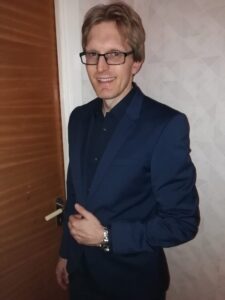By Mo Myers
You can do anything you set your mind to.
I picked this phrase up somewhere in my childhood and it became my mantra, my code to live by. I’m sure it was some well meaning adult who first uttered it, maybe it was my mother or maybe it was a bright eyed teacher. In any case, it is a very common phrase of encouragement, especially for little girls. Its used to let them know that despite everything they might learn and feel coming at them in our society, they are capable and have infinite potential.
The trouble was this: I have a tendency to hear advice and wrap my whole being around it. As a child, and honestly I find myself still doing this, I was constantly scanning my environment for clues about how I was meant to act and speak. My existence in relation to others was something that I struggled to hone and craft. I knew who I was and what I liked but that version of me seemed to be something that needed to be tamped down and doled out to other people in a very precise and curated way. I had this feeling of innate difference and separation from everyone in my life; my parents, my friends, and strangers alike. My first memory of inner thought was a voice that insisted there was something fundamentally wrong with me. All this to say, when people gave me advice, I latched onto it like it would be the the only thing that stood between me and total destruction.
You can do anything you set your mind to. This phrase specifically was one that bounced around my brain so often it became a core part of my personal beliefs. Whats the problem with that? It is a encouraging turn of phrase, right? The problem was that it was inaccurate and no matter what I did, I could never seem to do what I was setting my mind to. This is not to say that I didn’t have any successes or achievements to speak of. I did well in school academically and I was a skilled singer and athlete. However, upon further reflection, these were things that I was born with a natural talent for. I never studied because I didn’t need to, nor did I work hard at training my voice. I did voice lessons because I like to spend time with music, not because I was trying hard to achieve something. I don’t say this to brag or shove it in people’s faces that I had natural talent, quite the opposite in fact. My point is that I can’t take credit for these successes. I think that people who had to work for that A+ on the literature essay and took a week to draft it deserve much more attention and accolades than people like me who never had to try.
The things that I set my mind to were things that I have never been able to achieve. I believed with my whole heart that the only thing that stood between myself and my goals was grit, energy, and perseverance. I threw everything I had into achieving these goals that, as time went on, I began to feel like I would never reach. Since I had “You can do anything you set your mind to” emblazoned across my heart, it confirmed my feeling that I was a wrong person because surely if people said this phrase to children often it simply had to be true.
It may help to explain what my goals were, specifically the ones I felt like I could never reach. My biggest goal was to connect with people and feel part of my community. I’ve always felt out of step with the world. Trying to socialize with my peers was like talking to someone with a very thick accent. I could tell we were speaking the same language and that there was an expectation that we would be able to understand one another but I just couldn’t decode what they were trying to communicate to me. I could fake my way through it. If “You can do anything you set your mind to” was universally true, as I believed it was, that meant everyone else around me knew it was true. In turn, this meant that if people knew I had this social deficit they would also know that it was entirely my fault. I just wasn’t trying hard enough. They could do it, why was it impossible for me? It couldn’t have been that my brain was wired differently, it was that I must just have a deficit of information. If I could just read about people and characters or observe and decode enough of the behavior of my peers, I could fill in the blanks and do this one thing that had been eluding me. A part of me still wants to believe this. If this could just be true, then the power would be back in my hands and I would have a way to right my wrongs, (of course my differences are not wrongs but that is how it feels sometimes). I wonder if I had communicated these thoughts to the adults in my life if it would have made a difference. Maybe I would have a medical autism diagnosis as a child, but maybe not.








